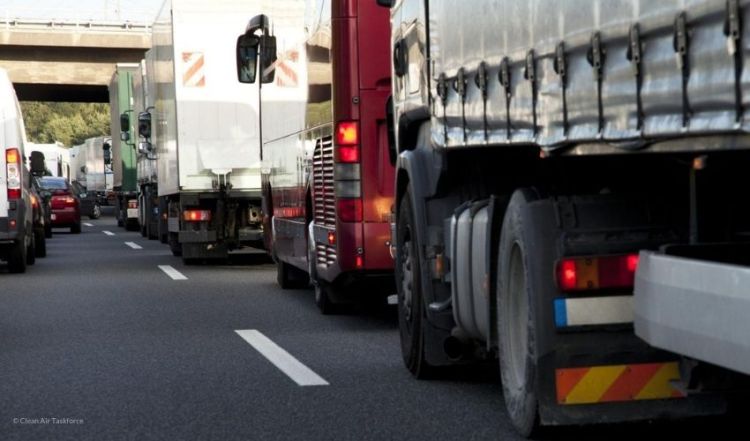Achieving sustainable transport requires a pragmatic approach to decarbonization, with effective strategies to reduce CO2 emissions and achieve a greener future.

Today, transport emissions account for approximately 25% of the EU's total greenhouse gas emissions, and these emissions have been on the rise in recent years. As the EU strives to become the first climate-neutral continent by 2050, it aims for a 90% reduction in transport-related greenhouse gas emissions. Achieving these ambitious goals requires a balanced and pragmatic approach to decarbonizing transportation, focusing on proven efficiency measures and adopting alternative fuels.
Key Strategies for Decarbonization
Decarbonizing the transport sector requires immediate and long-term strategies. Optimizing logistics, improving vehicle maintenance, and integrating advanced fuel-saving technologies are essential efficiency measures crucial for significantly reduce CO2 emissions. It is believed that these measures can cut up to 50% of all CO2 emissions from commercial road transport by 2050. By implementing long-term strategies, you can improve operational efficiency and reduce your environmental impact, leading to a more sustainable transport fleet.
Investing in Alternative Fuels
While efficiency improvements are essential, the journey toward carbon neutrality can only be completed by investing in alternative fuels. The remaining 50% reduction in CO2 emissions can be achieved through a steady transition to new fuels and the development of the necessary infrastructure to support them.
To further reduce emissions, alternative fuels such as carbon-neutral electricity, hydrogen, and biofuels must be integrated into the transport sector. However, for successful implementation, it is also essential to create vehicles and business models that support these alternative fuels. This balanced approach ensures that immediate gains and long-term transformations work together for a greener future.
Technology Neutrality
A fundamental component of a decarbonization strategy is the principle of technological neutrality. Policies should not impose a change toward specific transport modes, as this can lead to inefficiencies and unintended consequences. Instead, the various modes of transport should coexist and complement each other, increasing the overall efficiency of the transport network. This approach ensures that the most efficient and sustainable transport technologies can thrive without unnecessary constraints.
Collaboration Across Sectors
Collaboration across all sectors is vital to creating a more sustainable and resilient transport network, and decarbonizing the transport sector must be a collective effort. Transport operators, regardless of the mode of transport, have the expertise to optimize fleet operations efficiently and sustainably. Therefore, governments and sector leaders must trust these operators’ capabilities of and promote a well-regulated market that encourages innovation.
Global Perspectives on Sustainable Transport
Transport decarbonization is not just a regional challenge, but a global one. International cooperation, such as the integration of systems like TIR (Transports Internationaux Routiers), is crucial to promoting sustainable practices across borders. The European Commission's recent proposals, which include a package to make freight transport more efficient and sustainable, underline the importance of global perspectives to achieve carbon neutrality by 2050.
Achieving a greener future in the transport sector requires a pragmatic approach to decarbonizing transport. By adopting these strategies and green logistics technology, you will reduce your environmental impact while ensuring the continued success of your operations. Although achieving carbon neutrality is a challenging goal, it is possible through commitment and collective effort.
By taking these steps now, you can be a pioneer in paving the way toward a more sustainable and climate-resilient future. If you need help starting decarbonizing your fleet, contact a member of our team.
- Frotcom
- Sustainable Transport
- Decarbonization
- Alternative fuels
- Carbon Neutral
- Transport Emissions
- Green Transport
- Transport Sector
- Efficiency Measures
- Low-Emission Vehicles
- Carbon Footprint Reduction
- Clean Energy In Transport
- European Green Deal
- Transport Sustainability
- Climate-Neutral Goals
- Environmental Impact Of Transport

